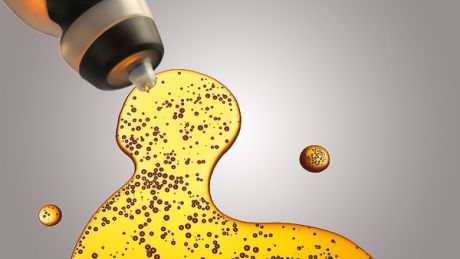A guide to lesser known supplements
The lowdown on some of the lesser know supplements available from your local health food shop.

Sign up for workout ideas, training advice, reviews of the latest gear and more.
You are now subscribed
Your newsletter sign-up was successful
CLA
Conjugated linoleic acid is an unsaturated fatty acid normally found in full-fat milk, meat and cheese. It's usually marketed as a fat-loss supplement that works by releasing fat from fat cells or blocking new fat from getting in. Experts believe it's better at the latter. 'Recent evidence suggests that CLA works mostly by inhibiting fat-cell filling, meaning it prevents fat cells from getting larger, which is not the same as causing loss of existing body fat,' says Dr. Lonnie Lowery. 'CLA may therefore turn out to be more useful for preventing fat gain than for causing loss of fat you already have.' Most researchers recommend 2g-5g a day, divided into three doses.
Energy gels
These come in small squeezable sachets and are designed to provide an easy way of consuming carbohydrate during intense endurance exercise lasting longer than an hour. Studies have shown that they delay fatigue and increase endurance, but they aren't designed to do away with the need to carry water - you'll still need to drink around 350ml with every 25g of gel or you'll be at increased risk of dehydration.
HMB
Beta-hydroxy beta-methylbutyrate is made in the body from BCAAs and is thought to be involved in cellular repair. Studies suggest that it may increase strength and muscle mass and reduce muscle damage after resistance exercise, although this hasn't been found in all studies. You can also find it in grapefruit.
Glutamine
Glutamine is a non-essential amino acid that the body synthesises. It is needed for cell growth and as fuel for the immune system. During periods of heavy training or stress, levels of it in the body fall. There's clinical evidence that glutamine supplements can decrease your risk of infection during these periods, but less evidence that it'll actually improve your performance.
MRPs
Meal replacement products are designed to provide a good-quality meal without the hassle of cooking. The best ones contain 30-40g of protein, some good carbohydrate sources such as maltodextrin, barley or oats, and vitamins and minerals. It's still better to eat fresh food if you've got the time, though.
Nitric oxide
The active ingredient in this is L-arginine, a non-essential amino acid made in the body. Nitric oxide is a gas involved in increasing blood flow to the muscles, delivering more nutrients and oxygen to them and theoretically causing a better pump, muscle growth and recovery. However, clinical trials haven't yet managed to prove that these supplements work.
Taurine
This is a non-essential amino acid produced naturally in the body. You'll recognise it from Red Bull cans, but it's also found in meat, fish, eggs and milk, as well as many creatine and protein products. They regularly claim that it'll give you extra energy, but that's debatable. 'One review surveyed nine years of research on the National Library of Medicine's database and concluded that the energy-enhancing effects of most generic energy drinks were mainly due to the caffeine,' says Lowery. 'They concluded the "lesser known ingredients" of energy drinks - including taurine - needed further study.'
Testosterone boosters
These aim to increase testosterone levels in the body, producing similar muscle-building effects to anabolic steroids without the side effects. There's plenty of anecdotal evidence to suggest that they work, but very little in the way of proven clinical trials.
ZMA
Zinc monomethionine aspartate combines zinc, magnesium, vitamin B6 and aspartate in a formula that claims to boost testosterone. If you're training really intensely you might benefit from the added zinc and magnesium, but be careful not to exceed maximum doses, especially if you're doubling up with other supplements.
These are the experts who helped us uncover the truth about the lesser known supplements:
Anita Bean
is the author of The Complete Guide To Sports Nutrition (£15.99, A&C Black Publishers). For more visit anitabean.co.uk.
Dr. Lonnie Lowery
is an exercise physiologist, nutrition expert and former competitive bodybuilder. He is also a licensed dietician specialising in sports nutrition.
Nikhil Rao
is a trainee doctor, avid weightlifter and regular contributor to the US bodybuilding site t-nation.com. He has been using creatine for six years.
Gregg Marsh
is a strength and conditioning coach, personal trainer and nutrition consultant. He has more than eight years of experience in nutrition.
Sign up for workout ideas, training advice, reviews of the latest gear and more.
Coach is a health and fitness title. This byline is used for posting sponsored content, book extracts and the like. It is also used as a placeholder for articles published a long time ago when the original author is unclear. You can find out more about this publication and find the contact details of the editorial team on the About Us page.

